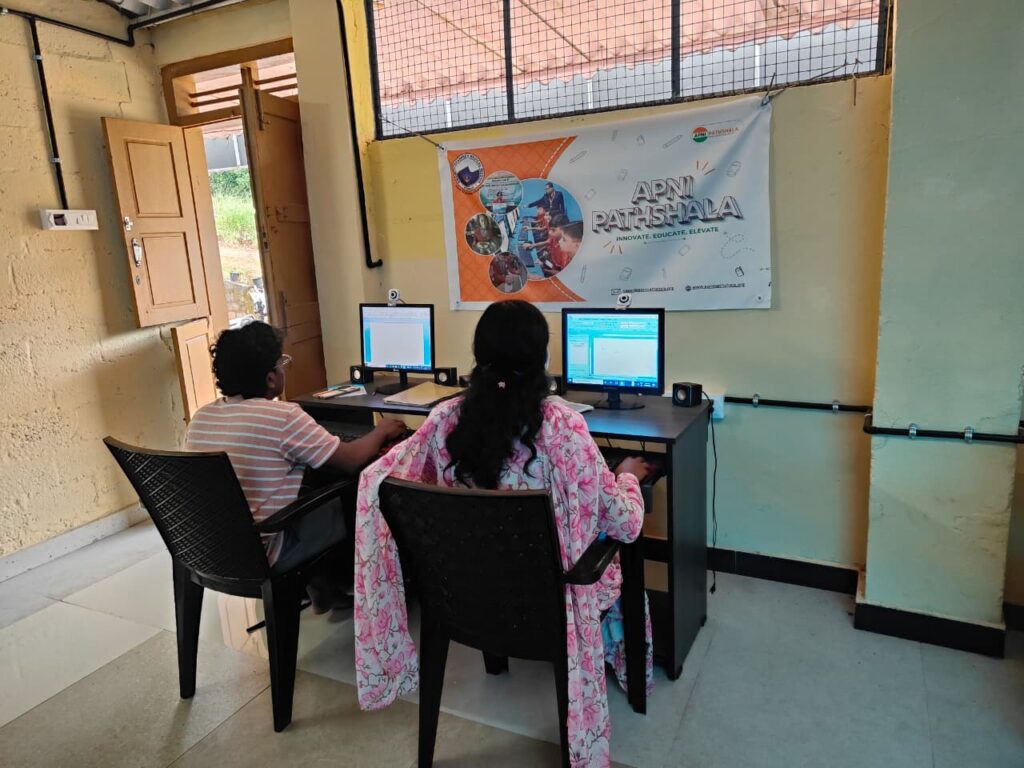In a world where first impressions are often made online, a student’s digital identity is no longer optional — it’s essential. In this eye-opening conversation, Dr. Malpani explains why every student should have their own website — not as a vanity project, but as a living portfolio of curiosity, creativity, and growth. A personal website helps students control their online presence, showcase their learning journey, and open doors to opportunities that traditional schooling often overlooks.

Parent: Dr. Malpani, I’ve been following your work on education reform, and I completely agree that we need to give students more autonomy. But I wanted to ask you about something specific — do you really think every student needs their own website? Isn’t that a bit much?
Dr. Malpani: I understand your skepticism! It does sound like overkill at first. But let me ask you this — when was the last time you hired someone, chose a doctor, or even selected a plumber without Googling them first?
Parent: Fair point. I Google everything these days.
Dr. Malpani: Exactly! And here’s the thing — whether your child likes it or not, they’re going to have a digital presence. The question is: will they control it, or will it control them? Right now, if someone searches for your child’s name, what comes up? Maybe some random exam results, an embarrassing social media post from years ago, or worse — nothing at all, which makes them invisible in today’s world.
Parent: I see what you mean. So a website gives them control over their digital identity?
Dr. Malpani: Precisely! Think of it as their digital home. When they apply for college, internships, or jobs, the admissions committee or recruiter will Google them. Wouldn’t you want them to land on a thoughtful, well-designed website that showcases who they really are — their interests, achievements, values, and potential — rather than some random, outdated information?
Parent: That makes sense. But what would a student even put on a website? They’re not accomplished professionals yet.
Dr. Malpani: That’s where most people get it wrong! A personal website isn’t about showing off how accomplished you are — it’s about demonstrating curiosity, growth, and the ability to reflect. Let me give you an example. Suppose your daughter is interested in environmental science. On her website, she could write about a school project on water conservation, share photos from a local cleanup drive she participated in, or even post her thoughts on a documentary she watched about climate change.
Parent: So it’s like a living portfolio?
Dr. Malpani: Exactly! Unlike a static CV that gets updated once a year, a website is dynamic. As students learn and grow, they can continuously add to it. Did they volunteer at an NGO? Write about it. Did they complete an online course? Showcase the certificate and reflect on what they learned. Did they participate in a debate competition? Post their arguments and analysis. Over time, this becomes a rich, authentic record of who they are.
Parent: I can see how that would be valuable. But don’t students already have LinkedIn profiles for this sort of thing?
Dr. Malpani: LinkedIn is useful, but it’s a template. Everyone’s profile looks the same — bullet points and job titles. A personal website gives students complete creative freedom. They can design it to reflect their personality, organize content the way they want, and most importantly, they own it. LinkedIn can change its algorithm or shut down tomorrow, but a website is theirs forever.
Parent: That’s a good point about ownership. What else can students gain from having a website?
Dr. Malpani: Thought leadership and communication skills. Look, education isn’t just about memorizing facts and passing exams. It’s about learning to think critically and express yourself clearly. When students write blog posts on their website — whether it’s about a book they read, a current event, or a personal experience — they’re developing these crucial skills. And here’s the bonus: they’re also building a public track record of intellectual curiosity.
Parent: So future employers or universities would see that they can think independently?
Dr. Malpani: Absolutely! Imagine two candidates applying for the same position. Both have similar grades and CVs. But one has a website where they’ve been consistently writing thoughtful articles, sharing their learning journey, and engaging with ideas beyond their curriculum. Who would you hire?
Parent: The one with the website, obviously. They’ve demonstrated initiative and depth.
Dr. Malpani: Exactly! And that website also becomes a powerful networking tool. When students publish quality content, people discover them — mentors, potential collaborators, conference organizers, research labs, even startups looking for interns. Your child’s website works for them 24/7, creating opportunities they might never have found otherwise.
Parent: I hadn’t thought about the networking aspect. But isn’t this all a bit intimidating? Most students aren’t tech-savvy enough to build a website.
Dr. Malpani: That’s the beauty of it — they don’t need to be coding experts anymore! Platforms like WordPress, Wix, and Google Sites make it incredibly easy to create a professional-looking website without any technical knowledge. And honestly, the process of learning to build and maintain a website is itself valuable. We’re living in a digital-first world. Students who are comfortable with these tools will have a massive advantage.
Parent: You’re right. Digital literacy is becoming as important as traditional literacy.
Dr. Malpani: Exactly! And here’s something else — having a website future-proofs their career. Ten or twenty years from now, online credibility will matter as much as, if not more than, offline reputation. Whether your child becomes a doctor, engineer, artist, entrepreneur, or teacher, they’ll need a strong digital presence. Starting early gives them a huge head start.
Parent: I’m convinced! But how do we get students started? Where should they begin?
Dr. Malpani: Start simple. Create a basic homepage with their name, a photo, and a short bio. Then add an “About Me” page where they talk about their interests and goals. From there, they can gradually add sections — a blog, a portfolio of projects, volunteer work, or anything else they’re proud of. The key is to make it authentic. This isn’t about impressing anyone with fake perfection. It’s about showing genuine growth and curiosity.
Parent: And parents should encourage this?
Dr. Malpani: Absolutely! But here’s the important part — let the students own it. Don’t micromanage their content or try to make it “perfect.” The website should reflect their voice, not yours. Your role is to support and encourage, not control. Remember, we’re trying to give students autonomy and agency. This is their platform to express themselves.
Parent: I love that philosophy. It really does put students first.
Dr. Malpani: That’s the whole point of education reform! We need to stop treating students as passive recipients of information and start empowering them as active creators and thinkers. A personal website is just one tool, but it’s a powerful one. It gives students ownership over their learning, their identity, and their future.
Parent: Thank you, Dr. Malpani. This has been incredibly helpful. I’m going to talk to my daughter about starting her website this weekend!
Dr. Malpani: Wonderful! And remember — this is just one small step in giving your child the education they truly deserve. If you really want to transform their learning experience, take matters into your own hands by starting your own digital learning pod — your children will not get a second chance! https://www.teachtoearn.in/start-a-teach-to-earn-learning-pod/
